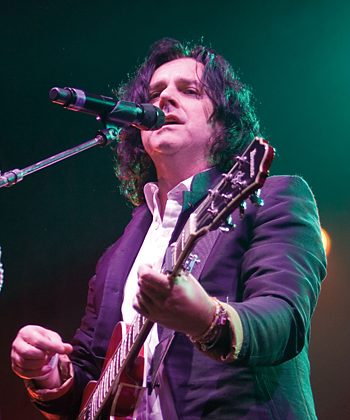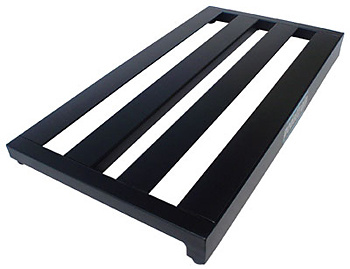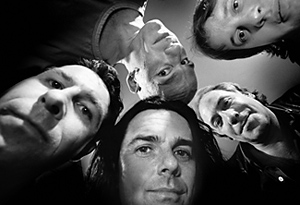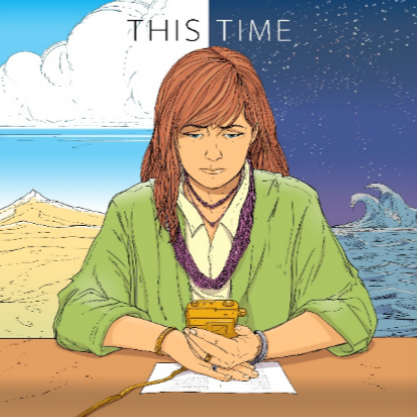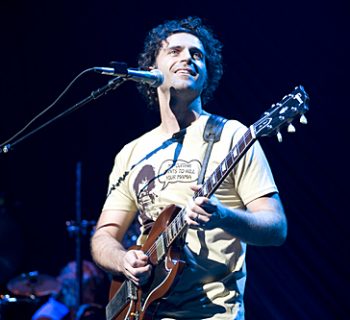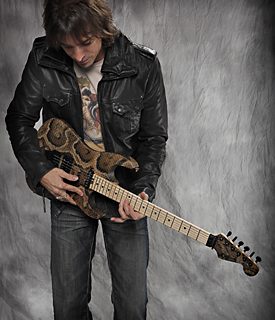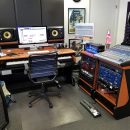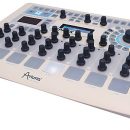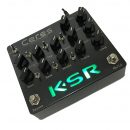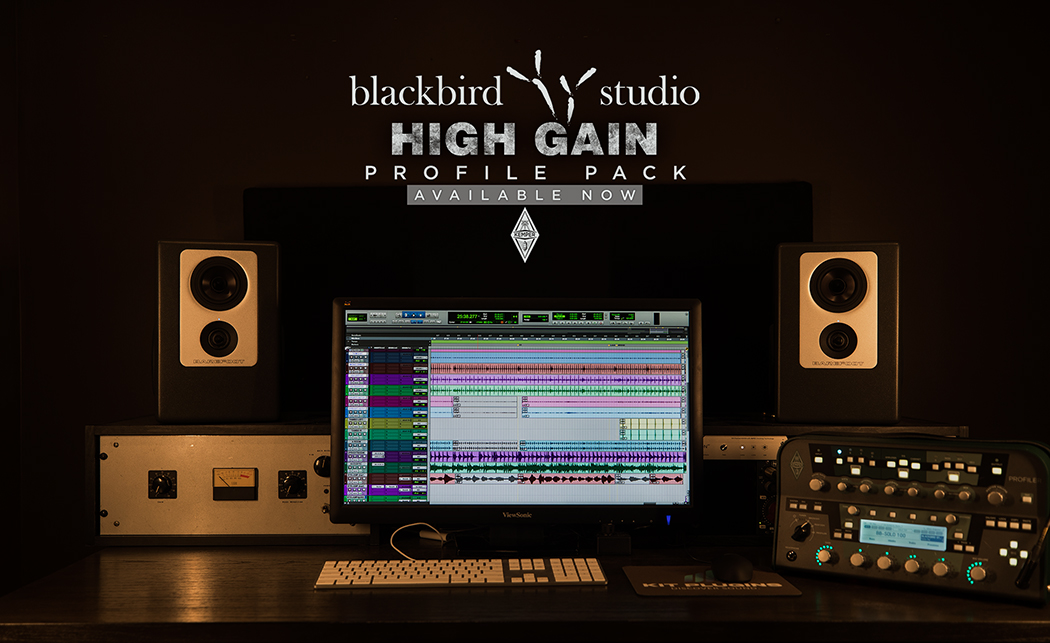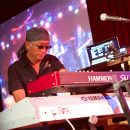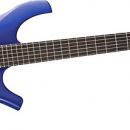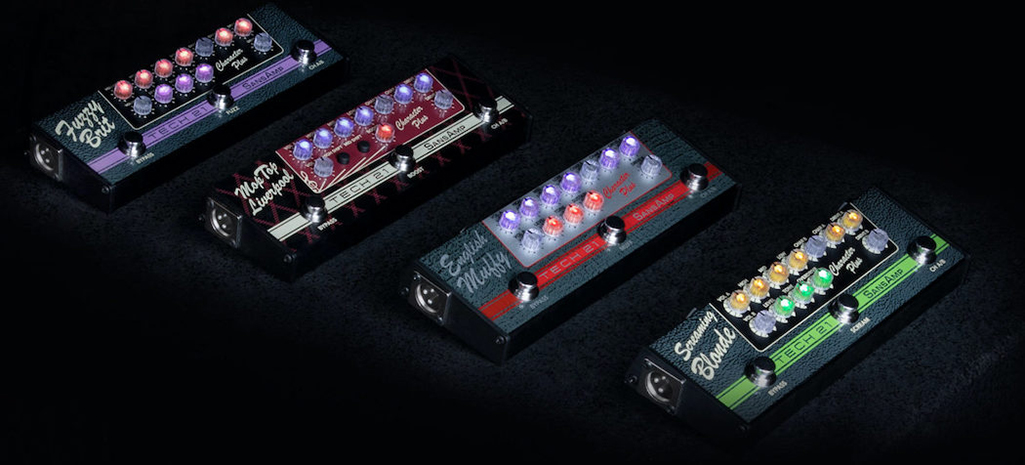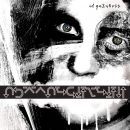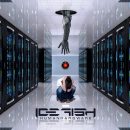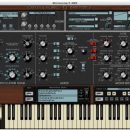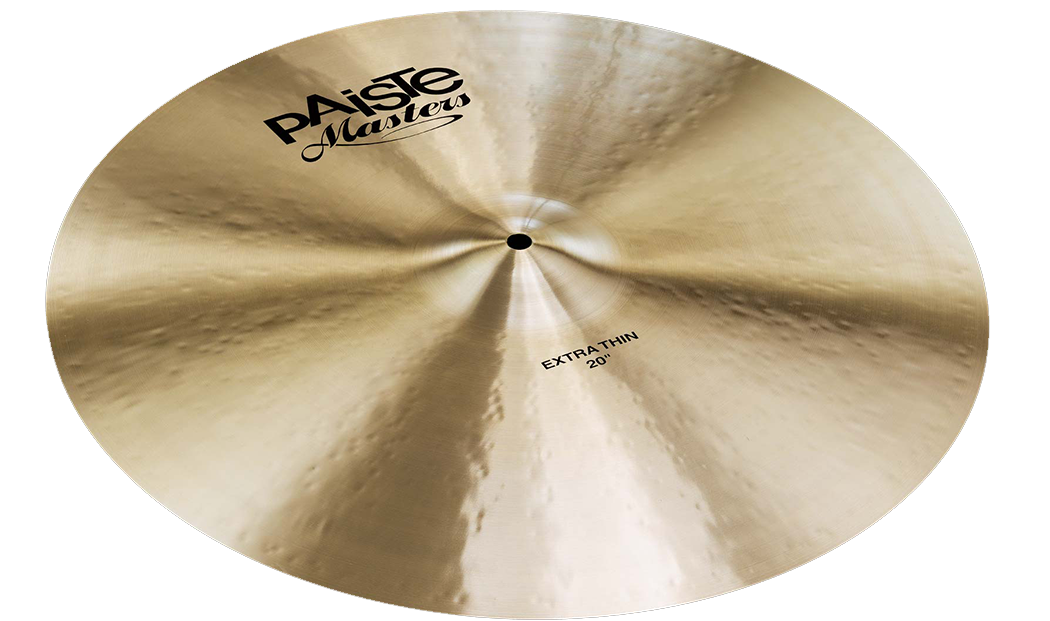Steve Hogarth is one of those rare vocalists today with a singularly identifiable voice: melodic, with just the right amount of grit to convey the honesty of his thought-provoking and emotionally touching lyrics.
A fabulous storyteller, Steve writes from personal experiences and self-reflection, and with that come a sense of honesty that is inescapable in his lyrical delivery. The sense of sadness and loss at times rivals the finest efforts from the genre of gothic music. I could almost envision Steve sitting down to lunch with that other English purveyor of sad lyrics, Robert Smith, trading stories of despair (thankfully not fashion tips for how to wear black eyeliner).
If you want a healthy dose of self-reflection, grab some Marillion CDs – yes, the physical kind with inserts and liner notes, and settle in for a lyrical journey sure to make you reflect on life, the universe, and everything (to paraphrase yet another great Brit).
I think Mike’s really brought a sense of closeness to this record.
Note: If you jumped into this interview directly, don't miss our extensive Marillion band interview and feature story here.
MPc: Let's start with the fact with that this is the tenth studio album you’ve recorded with Marillion – that’s quite and accomplishment. When you first joined up and recorded Seasons End, did you ever think that Marillion would become your musical home for such a long career?
Steve: No. If someone had asked me the question at the time, I think my gut reaction would have been “no” because who stays in a band for eighteen years for god’s sake? No one really asked me the question so I never really thought about it. To be honest, it doesn’t seem like eighteen years – it seems like ten, which is still a long time to be in a band. But it doesn’t feel like it’s been eighteen years at all.
MPc: Tell me about working with Mike Hunter in the producer’s chair for Somewhere Else as it related to your vocals, and how the approach might have been different for you compared to the previous albums with Dave Meegan.
Steve: I think I’ve been growing the whole time. Back to the first time we worked with Dave back on the Brave album and even to a lesser extent during the Afraid of Sunlight album, I wasn’t quite as confident as a singer back then, and so I was much more fussy about the monitors, and whether to do it on speakers or headphones, and how loud to have this and how loud to have that, and whether I should do it in the control room with Dave.
And I did record a lot of those vocals on Afraid of Sunlight and even later on Anoraknophobia that way. I was recording a lot of vocals in the control room, standing right behind Dave. What I use to hate about doing vocals [in a booth] was that any feedback you got from a producer came down the headphones, and there was something entirely judgemental and removed about that. And I found that even the most postive critism or guidence would piss me off or upset me a bit, down the head phones, in a way that it wouldn’t if I was just in the room talking to the producer.
MPc: It’s like someone calling you on the telephone and saying, “You suck.”
Steve: Yeah, it’s strang how critism down a wire seems more negative than if it’s in the room. You’re looking into the person’s eyes and then you can take it for what it is, and take it for a positive thing or as an experiment. When it just comes down the headphones to you, it just bugs you. So, I use to prefer doing vocals in the control room where I could talk to the producer across the room while we were working things out. But that seems to have stopped bothering me these days and I did all of these ones in the recording area and Mike just sat in the contol room.
I think his approach to vocals, to the recording of the vocals, and the mixing of the vocals, has made my voice sound a lot drier on this record than I’m use to hearing. [Comparably] Dave really loves his echoes and his reverbs and his spins. I think that makes for a great atmosphere, which is good, but it’s a trade off between having the atmosphere and sonic clarity and a sense of closeness. I think Mike’s really brought a sense of closeness to this record. That’s the one thing that really strikes me, is that the whole band really feels nearer you.
… that for me is the first time ever that really represents all five members of the band at the very top of their game at the same time.
MPc: What are some of your favorite or proudest recorded moments, looking back on your career with Marillion thus far?
Steve: I really get off from guitar so, looking forward from the beginning I really get off on that guitar solo that Steve blew on “Easter” on the Seasons End album. I thought it was astounding the first time he did that, and he just did that from the hit, you know, he didn’t give it any thought. He just did it in rehearsal one day and fortunately we had a cassette machine running and we managed to catch it, and I said he must not change a note or an inflection – it’s amazing. He had to go away and learn it from what he’d done, you know. So I’m very proud of “Easter” and how that turned out. I’d written most of that song before I’d joined the band, so I kind of expected that song to end up in the trash, and it was great to see it come to life, and for it to turn into one of our classics, so I’m very proud of that.
I love “Beyond You” on Afraid of Sunlight. I love the way that Dave Meegan captured the honesty and the tenderness of it. And you know, it’s quite disturbing, it’s so honest. I love the title track on Brave particularly – the ghostliness of it and how it seems that it’s all full of ghosts… and it’s not easy to catch ghosts on tape.
More recently, I’m very proud of “If My Heart Were a Ball It Would Roll Uphill” from Anoraknophobia. And I’m very proud of “Fantastic Place” from Marbles. And then there’s “Neverland,” – it’s pretty amazing.
And I think title song on the new album, Somewhere Else, there’s a part of that song… I mean the whole thing is incredible. I’m trying to be modest, but it is incredible (laughing). There’s a point where the drums come back in towards the end after all the loops and I have time to look at myself and there’s a backwards drum fill into it and then the entire band really kicks into it. There’s a very loud section at the end, a very intense section. And that for me is the first time ever that really represents all five members of the band at the very top of their game at the same time, and that’s amazing. That’s the first time I can say that it’s all five of us right on the ceiling of what we’re capable of, and that’s a joy to hear. And it’s also encouraging to think after all this time we can achieve that level. I still feel like we’re growing and improving.
If a band becomes conscious of its genre or its market, as far as I’m concerned, it’s just about all over at that point.
MPc: Something that you touched on leads to me to the fact that your lyrics really cover the range of human emotions and experiences. I would think that if you personally experienced all the pain, sorrow, disillusion, and greed covered lyrically through the past few albums, I don’t think there’s a chance you would be alive today. I was thinking about “The Party” and your ability to tell fantastic stories. This was a song about a high school girl going off to a party, but of course you guys were all at least ten years beyond that when you sung that story.
Steve: I can see in my head the parts that you’re talking about. I think I was about sixteen and there was this girl in our school called Janet Jones, and her mom and dad used to go out and leave her on her own in the house. So she used to throw parties while they were out and we all used to get on buses and go across town to her house. And that’s all completely blow-by-blow accounting of the parties that she used to throw that I used to go to. But I was very young at the time, and it wasn’t an intimate memory. I have lived just about everything in those songs, and it has been touch and go, here and there. But I’m in a good place right now. So I’ve come through it mostly unharmed, I think.
MPc: Listening to your lyrics (sometimes) it’s a fun unraveling of a mystery getting to what you’re writing about. Remembering back to when I first heard you guys on Seasons End, and your lyrical content talking about the “…girl in the novel in the wind on the moors…” and thinking “Oh my god! He’s talking about Bronte’s Wuthering Heights!” Rock singers don’t go there, and that was just great. (laughing) So let’s talk about writing unexpected music and the freedom of being your own record label.
Steve: At least one song on this new album is about tree ferns – there’s not a lot of tree ferns in rock and roll either. I’ve gone botanical (laughing)! I don’t think there’s every really been an onus placed on me from the rest of the band or anyone else to write rock songs. I’m very cynical of genres, anyway. If a band becomes conscious of its genre or its market, as far as I’m concerned, it’s just about all over at that point. At that point a certain sense of cynicism sets in, born out of insecurity or some kind of desperation, or from outside intervention, like an A&R man saying “We need something more for radio.”
We’re very lucky in that over the years, we really have drifted a long way away from many of those pressures. We don’t have an A&R man or a manager. We got rid of them all. And we’ve found ourselves now in a place where the fans that we have are expecting to be surprised. They know we’re not gonna’ give them the same album twice and they know we’re probably gonna’ do something really cool like “The Other Half,” where it starts out sounding psychedelic and then it turns into jazz at the half-way point and then it turns into another song entirely.
We’re kind of free now to do anything we like and can show over the last ten years that we’ve had a look at gospel, we’ve had a look at dub, we’ve had a look at blues, we’ve had a look at jazz, and we’ve had a look at strange time signatures. And then after all that we’ve knocked out a song like “Most Toys,” which sounds to me more like Siouxsie and the Banshees then anyone else.
I think our fans know that there’s a good chance that we can go anywhere at any moment in time. But they know that if we go there, we’ll go there because it happened naturally. And they’ll know that what I’m singing is the truth.
I think you can smell truth, though you don’t actually have to understand it. I think some of my words are not entirely clear, but human beings can just sniff the truth, and they can sniff what’s fake as well, and it might take some time before you can really understand what a song is about. But if you can sniff that it’s true, it actually doesn’t matter because you’ll get off in the emotion contained in it. And it will move you because it’s a true thing. And I really believe that.
MPc: Are there any songs in particular that you have a hard time singing or performing live because of the emotional content?
Steve: I had a little trouble getting my head around singing “Beyond You” for many, many years because I was in such a state when I wrote that song. When I recorded it, I thought that I’d never be able to sing it because the first thing to go, if you get emotional, is your voice. I often cry on stage during the shows because something I’ve written, I’ve forgotten all about, will come back to me. And it will creep up on me, surprise me, and I’ll find myself weeping. And the first thing to go is your voice. You can’t sing. So the first thing that cracks is your voice before the tears come.
Also “Estonia,” of course, which is a song about how when you lose someone, you haven’t necessarily lost them. It’s a song about bereavement, really. It’s an optimistic song. My Dad said that he would want that song to be played at his funeral, and so we did. So to sing that song I have to try and detach a part of myself to be able to sing it because, obviously, it brings with it some of my greatest sadness. It’s funny… I’ve found a way over the years to get through most of those deeply sad truths that I have to perform. I can get right inside them and just keep enough of myself to one side to hold it together. It can be very exhausting.
I’ve tried everything: honey and lemon, and pineapple, and aloe vera juice, and all of those potions – they just give you diarrhea, and they don’t affect your voice one drop.
MPc: On the technical side of you being a singer, is there a particular microphone that you favor for recording and performing vocals?
Steve: Well, the one we used on this album is that new Neumann KMS 104. It’s a condenser mic that’s sort of [Shure] SM 58-ish; it’s one of those mics that goes in a mic clip. People are using them a lot now. I first heard it used by this guy called Arthur Lee, who had a band called Love in the ‘70s. He came [more recently] and did a tour in the UK, and I went to see him play at Brooks University at Oxford, and he was using this mic I had never seen before. I went and even asked the sound man at the end of the gig… I said, “What vocal mic is that guy using?” because his voice was really distinct somehow through it. And I thought that I had grown so use to using SM 58s and Beta 58s live and there was this funny black thing with a Neumann badge on it and I said, “What is it?” and the guy told me what it was, so I wrote it down and we bought one and I’ve been using that.
MPc: And you record with that as well?
Steve: Yes, I recorded all the vocals with it. We have some of those really expensive condenser mics that look more like tin cans. My voice doesn’t really suite a microphone that is too posh. By posh I mean luxurious. I think anything too super clean, my voice sounds too thin and papery through. I’m better through something lower tech.
MPc: So you’ve actually used Beta 58s for recording your vocals?
Steve: Oh, god yeah, the whole “Afraid of Sunlight” was Beta 58. Much of “Brave” was 58. I’ve been recording with 58s for years in preference to the really expensive super-clean things. If you listen to the vocal sound on “Afraid of Sunlight,” it’s a fabulous vocal sound, but it was just a 58.
MPc: When Marillion embarks on a tour, what do you do to help take care of your voice and keep it in top form? That’s always a serious task for a lead vocalist.
Steve: I think the only thing you can do is don’t take any of those drugs you put up your nose, step one, because that dries your throat out. You’re on the highway to hell if you do any of that. I don’t drink wine or spirits when I’m tour because I find they make my voice a bit scratchy. So I stick to beer when I’m drinking. And get to bed as early as possible to get to bed – that’s the other thing because nothing knackers your voice like tiredness. Unfortunately, the earliest possible to get to bed is normally about 2:00 am. There’s a terrible price to pay for sitting up talking till 4:00 am. I learned that in the past.
Apart from that, there’s no more advice I can really give a singer. None of the potions work. I’ve tried everything: honey and lemon, and pineapple, and aloe vera juice, and all of those potions – they just give you diarrhea, and they don’t affect your voice one drop. So don’t bother with any of that. (laughing) Just try to get to bed as early as you can and try not to party too hard. If you’re lucky like I am and have a fairly durable voice you’ll be fine. Oh, and in-ear monitoring was also the other thing that helps an awful lot.
MPc: When did you guys start using that? When did you make that switch?
Steve: I think it was only on the last tour. It was only on the Marbles tour that I first used them, and they do take a bit of getting use to, but as so many people will tell you, you’ll never go back [to floor wedges]. It makes it easier to pitch when you’re singing on top of a bloody great wall of noise. You’re much less likely to over-sing and rip your voice out if you get carried away. That helps a lot on tour.

